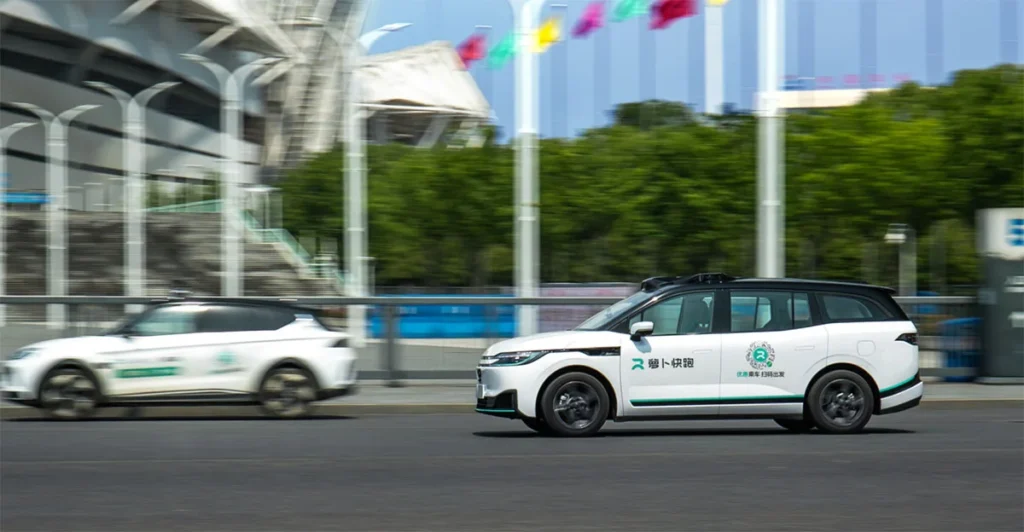Baidu has begun discussions with foreign automakers, ride-sharing platforms and other tech companies about deploying Apollo Go outside of China through local partnerships, according to Nikkei Asia.

Baidu plans to launch its robotaxi service Apollo Go outside of China, Nikkei Asia reported today.
The Chinese tech giant has begun discussions with foreign automakers, ride-sharing platforms and other tech companies about deploying Apollo Go outside China through local partnerships, the report said, citing people familiar with the matter.
The timing and location of Apollo Go’s overseas operations have not yet been finalized, according to those people.
It seems unlikely that Chinese robotaxi players will be allowed to operate in the US in light of the US Commerce Department’s announcement in September that it plans to ban Chinese self-driving car software, the report noted.
The US Department of Commerce’s Bureau of Industry and Security issued a notice of proposed rulemaking on September 23 that said it would ban the sale or imports of connected cars that integrate specific Chinese and Russian hardware and software.
The software ban would go into effect for Model Year 2027, the hardware ban would take effect for Model Year 2030, or January 1, 2029 for units without a model year.
Baidu got involved in self-driving technology in 2013, and was one of the first Chinese companies to enter the field.
On May 15, Baidu launched its sixth-generation robotaxi, costing RMB 200,000 yuan ($28,310), a 60 percent drop from the previous model.
The vehicles will join a fleet of robotaxis on Apollo Go, which by the end of 2024 plans to deploy 1,000 sixth-generation robotaxis in Wuhan, Hubei province in central China, Baidu said in May.
To date, Apollo Go is available in more than 10 cities in China. In the second quarter, Apollo Go provided 899,000 rides, up 26 percent year-on-year, according to Baidu’s latest earnings report.
In addition to Baidu, self-driving car startup Pony.ai is also targeting Southeast Asia, Europe and the Middle East, according to Nikkei Asia.
Pony.ai signed a memorandum of understanding with Singaporean cab operator ComfortDelGro in preparation for the launch of Pony.ai’s robotaxi service in Singapore and other countries later this year, the report noted.
On September 25, WeRide, another Chinese self-driving startup, announced a strategic partnership with Uber to advance the use of its self-driving vehicles on Uber’s platform and will first launch operations in the UAE.
Notably, WeRide emphasized that the partnership does not involve the US and Chinese markets.
($1 = RMB 7.0657)
Become A CnEVPost Member
Become a member of CnEVPost for an ad-free reading experience and support us in producing more quality content.
Already a member? Sign in here.

